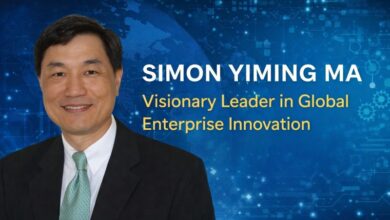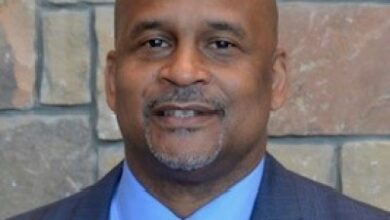Sophia Gaston: A Leading Voice in Global Foreign Policy and Geopolitical Research

Sophia Gaston stands out as one of the foremost foreign policy analysts and geopolitical researchers of her generation. Her work focuses on strengthening the resilience of advanced liberal democracies in today’s complex global environment. Known for her insightful analyses of Britain’s strategic interests and global security challenges, Gaston has built a distinguished career advising governments, think tanks, and academic institutions. This article explores her background, key contributions, affiliations, and personal life, providing a comprehensive look at her impact on international affairs.
Who Is Sophia Gaston?
Sophia Gaston is a British foreign policy analyst and researcher specializing in the intersection of global strategy, security, and public opinion. She has earned recognition as an expert on the Euro-Atlantic and Indo-Pacific security theatres, regions critical to current geopolitical stability. Her research primarily addresses how Britain can advance its core strategic interests in response to rising authoritarian powers such as China and Russia, while also reinvigorating its alliances and fostering public support for a proactive global agenda.
Gaston’s work goes beyond traditional policy analysis by pioneering social research that integrates domestic public opinion with international policy decisions. This holistic approach enables policymakers to better understand the social and political contexts shaping foreign policy, which is essential in an era marked by rapid geopolitical shifts.
Academic and Professional Background
Sophia Gaston’s educational and professional journey is marked by prestigious institutions and influential roles that have shaped her expertise.
Education
Gaston’s academic foundation is both deep and diverse. She holds a Master of Science in Global Politics with First Class Honours from The University of Melbourne, complemented by a Bachelor of Arts in Politics and History. Additionally, she earned a Diploma in Modern Languages, focusing on French Studies, reflecting her broad intellectual interests.
Further advancing her research skills, Gaston completed research scholarship work at the London School of Economics (LSE), focusing on democracy and public policy. Her time at LSE was pivotal, where she contributed as a visiting research fellow in the Institute for Global Affairs, helping to bridge academic theory with real-world policy applications.
Key Professional Roles and Affiliations
Sophia Gaston’s career path is characterized by leadership roles across renowned think tanks and academic institutions:
-
King’s College London: Currently, she serves as a Research Fellow at the Centre for Statecraft and National Security in the Department of War Studies. Her work here focuses on the UK’s alliances, adversaries, and strategic tools in today’s fragile geopolitical landscape.
-
European Policy Centre (EPC): As an Academic Fellow, Gaston contributes to this Brussels-based think tank, which specializes in European Union affairs and the broader geopolitical environment surrounding Europe.
-
Australian National University – National Security College: She is an Expert Associate at this institution, which is globally recognized for its education and research in national security and intelligence.
-
Australian Strategic Policy Institute (ASPI): Gaston is a Senior Research Fellow (London), where she leads the AUKUS Industry Forum. This role centers on the trilateral security pact between Australia, the UK, and the United States, aiming to enhance cooperation in defense technology and strategic partnerships.
-
Policy Exchange: From 2022 to 2024, Gaston was Head of Foreign Policy and UK Resilience, where she spearheaded strategic foresight initiatives integrating Euro-Atlantic and Indo-Pacific security concerns. She founded and directed the AUKUS Industry Forum, a platform for government, industry, and academia to collaborate on defense innovation.
-
British Foreign Policy Group (BFPG): From 2019 to 2022, Gaston was the Director of this independent think tank. She grew BFPG into a respected entity influencing public and policymaker debates on Britain’s global role. Her leadership helped bridge domestic social landscapes with international foreign policy, building public consensus on strategic issues.
-
London School of Economics (LSE): Gaston was Head of Research for ‘Arena’ at the Institute for Global Affairs, a program focused on countering misinformation, populism, and political polarization, particularly in fragile democracies.
Sophia Gaston’s Research Focus and Contributions
Gaston’s research portfolio is notable for its breadth and relevance to contemporary global challenges.
Strategic Focus Areas
-
UK’s Global Strategic Interests: Gaston’s work extensively analyzes how the UK can maintain and enhance its global influence amid shifting power balances. She assesses the evolving threats posed by authoritarian states such as China and Russia and explores strategic responses including strengthening alliances and advancing innovation.
-
Euro-Atlantic and Indo-Pacific Security: Recognizing the critical importance of these regions, she has authored reports on their security dynamics. She closely examines initiatives like the AUKUS pact, which underscores Britain’s engagement in the Indo-Pacific alongside its traditional Euro-Atlantic commitments.
-
Public Opinion and Foreign Policy: Gaston has pioneered surveys and social research measuring British public attitudes toward foreign policy topics. Her findings highlight how domestic politics and social trends influence foreign policy choices, emphasizing the need for public consent in democratic governance.
-
Integration of Domestic and International Policy: Her studies advocate for a holistic approach where internal social resilience and external diplomatic strategies are interlinked to bolster national security.
Sophia Gaston’s Personal Life: Age, Accent, Nationality, and Marriage
While Gaston maintains a professional public profile, some personal details are publicly known:
-
Age: Sophia Gaston’s exact age is not widely publicized, but her educational and career timeline suggests she is a mid-career professional in her late 30s or early 40s.
-
Accent: Being British and educated largely in the UK and Australia, she speaks with a refined British accent typical of educated professionals.
-
Nationality: Sophia Gaston holds British nationality. Her career and affiliations reflect strong ties to the UK and its institutions.
-
Husband and Wedding: Sophia Gaston is married to Sebastian Payne, a well-known British journalist and former think tank director. Their partnership is noted in media circles as a meeting of minds between journalism and policy expertise. Details of their wedding are private, but their relationship is recognized within UK political and media networks.
The Impact of Sophia Gaston’s Work
Sophia Gaston’s influence extends across academic, governmental, and public spheres. Through her research and leadership, she has:
-
Informed UK government policy on foreign relations, particularly in navigating challenges posed by China and Russia.
-
Fostered public understanding and consent on foreign policy through social research and engagement initiatives.
-
Advanced collaboration between academia, government, and industry, especially through forums like the AUKUS Industry Forum.
-
Provided strategic insights on how democracies can counter rising populism, misinformation, and geopolitical threats.
Conclusion
Sophia Gaston exemplifies the modern foreign policy analyst—deeply knowledgeable, strategically savvy, and socially conscious. Her work in blending rigorous geopolitical research with public opinion studies provides a nuanced understanding of how advanced democracies can navigate an increasingly complex and uncertain world. With ongoing roles at King’s College London, the European Policy Centre, the Australian National University, and the Australian Strategic Policy Institute, she continues to shape policy debates and build bridges between governments, academics, and the public.
Her career trajectory and personal dedication position her as a leading figure in the realm of global security and foreign policy analysis, ensuring that her insights remain vital as Britain and its allies face the challenges of the 21st century.



